五月�����,溫暖而迷人
瀰漫著初夏的味道
五月������,感動(dòng)而喜悅
洋溢著笑臉向我們走來(lái)
五月������,充滿(mǎn)著朝氣
激勵著人們用平凡的勞動(dòng)
憧憬美好的未來(lái)
勞動(dòng)創(chuàng)造了歷史
勞動(dòng)創(chuàng)造了未來(lái)
勞動(dòng)幫助孩子走向獨(dú)立
May is warm and charming.
The smell of early summer is everywhere.
May is moving and joyful.
He came to us with a smiling face.
May is full of vitality.
It encourages people to use ordinary labor.
Looking forward to a better future.
Labor has made history
Labor creates the future.
勞動(dòng)是一切智慧的源泉�����,適當(dāng)的勞動(dòng)不僅能夠鍛鍊孩子的動(dòng)手能力����,還可以培養(yǎng)他們吃苦耐勞的精神����,對(duì)孩子的成長(zhǎng)有很大的幫助���。那麼���,孩子的勞動(dòng)習(xí)慣我們又應(yīng)該如何培養(yǎng)呢?
Labor is the source of all wisdom. Proper labor can not only help children practise their manual skills, but also cultivates their spirit of hard work. Both these things help children grow. So, how should we cultivate children's working habits?
其實(shí)�����,兒童勞動(dòng)和成人勞動(dòng)在意義和內(nèi)涵上有所不同������,孩子的勞動(dòng)只是最基本的生活自理和一些力所能及的事���。正如瑪利亞·蒙特梭利博士所說(shuō):能夠做力所能及的事情������,比如會(huì)繫鞋帶、自己穿脫衣服的孩子���,都會(huì)將他的快樂和成就感寫(xiě)在臉上�����,成為一個(gè)有尊嚴(yán)的人������。人的尊嚴(yán)來(lái)源於人格的獨(dú)立���。
Children's labor and adult's labor differs. Children's labor is basic self-care. Dr. Maria Montessori said that a child who can do what he can, such as tying shoes and taking off his clothes has a sense of achievement and happiness and becomes a person of dignity. A person’s dignity comes from their independent personality.
在蒙特梭利教室裡孩子是如何通過(guò)勞動(dòng)走向獨(dú)立的呢?
How do children become independent through labor in a Montessori classroom?
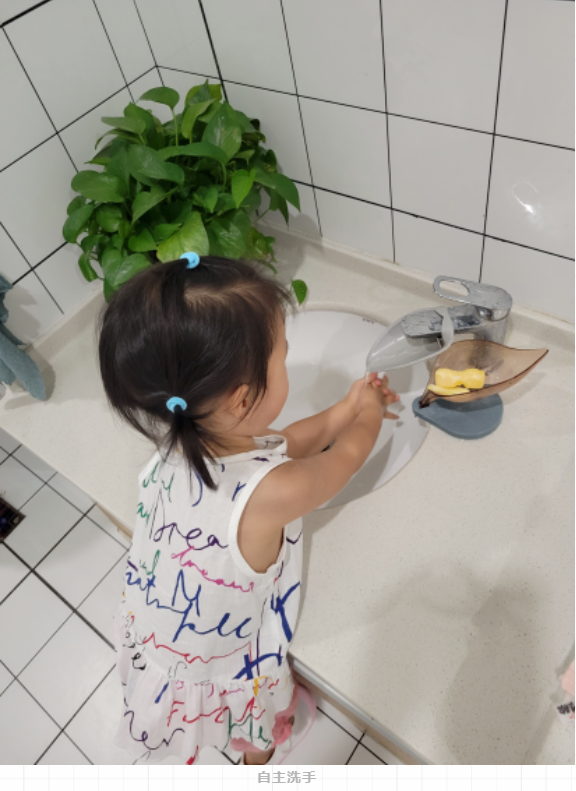
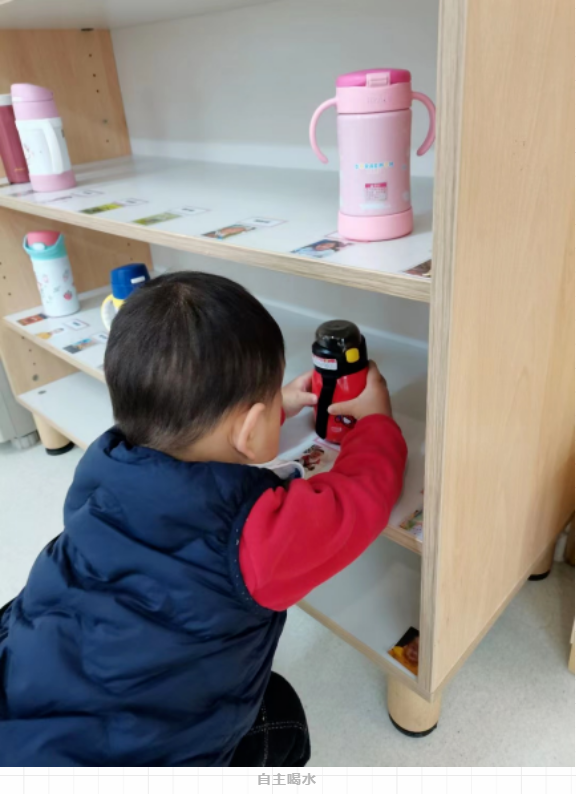
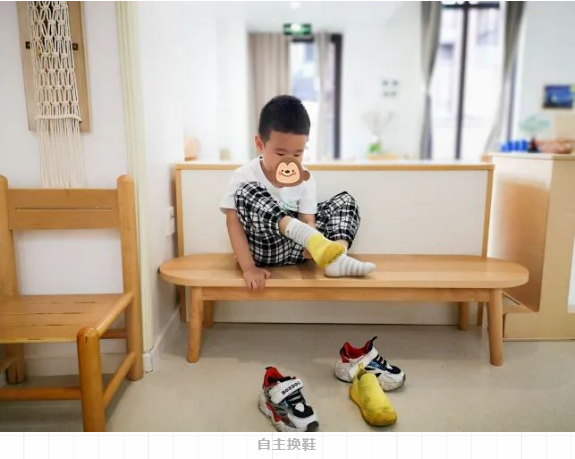
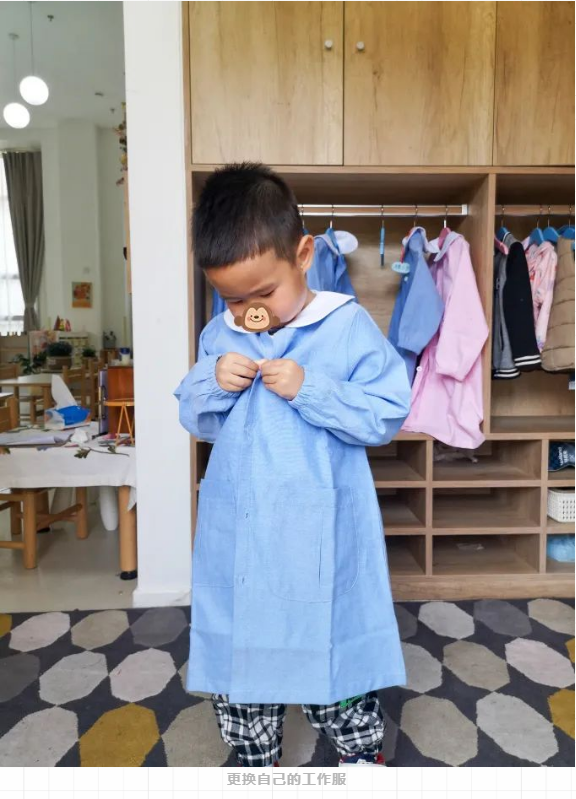
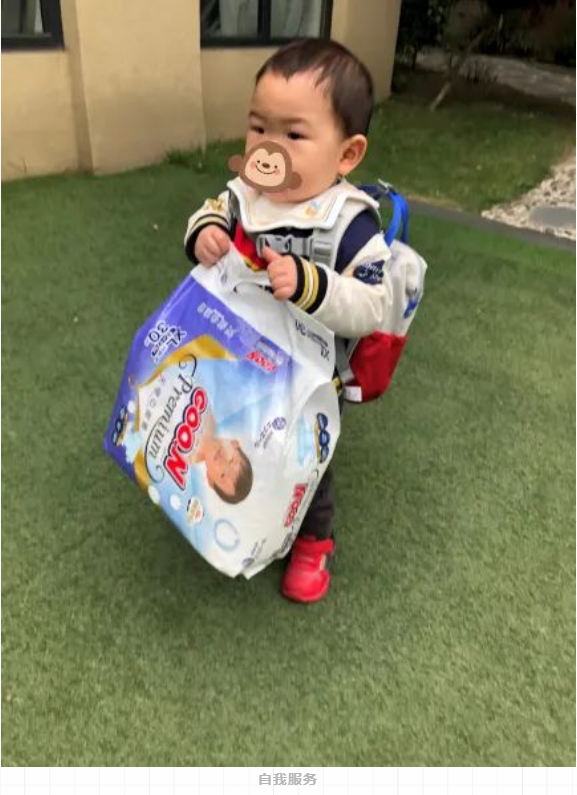
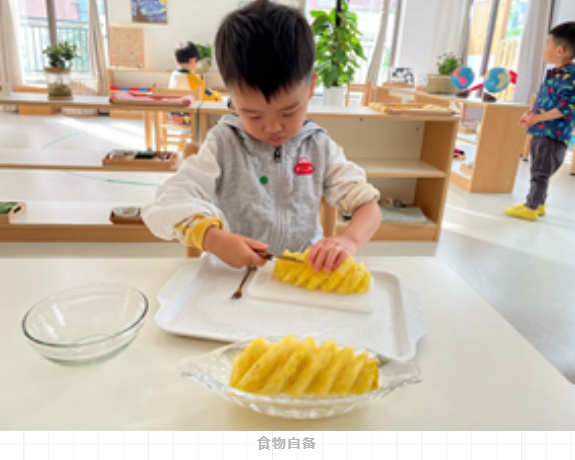
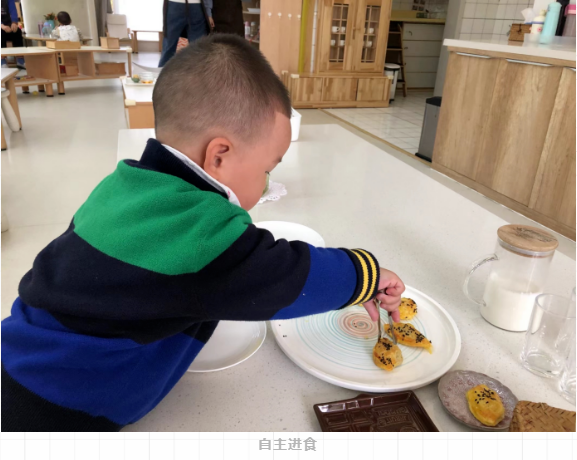
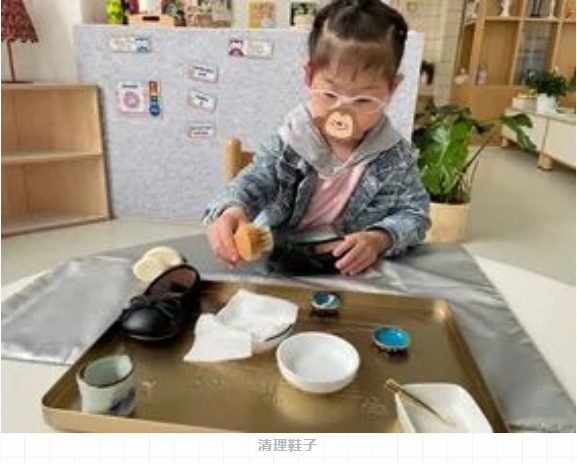


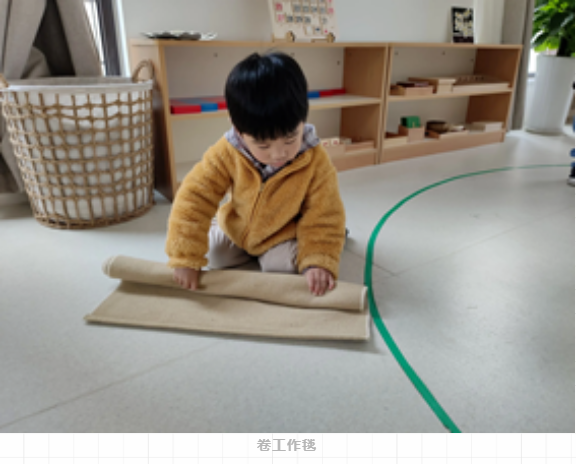
孩子們通過(guò)自己的努力����,在完成自我照顧與環(huán)境的維護(hù)����。我們從孩子的身上能夠感受到他們的平和與專(zhuān)注����,享受著這種自我照顧給自己帶來(lái)的成就與滿(mǎn)足�����。在這些行為背後是老師們對(duì)孩子足夠的信任、耐心的等待與適時(shí)的引導(dǎo )�����。
Children work hard to look after themselves and to maintain their environment. We can feel their concentration and peace. Our students enjoy the sense of achievement and satisfaction that comes from taking care of themselves. Children develop this through having trusting relationships with, and receiving patience guidance from their teachers.
孩子們在學(xué)校可以獨(dú)立自信�����,照顧好自己����,維護(hù)好環(huán)境�����。在家又可以參與哪些勞動(dòng)呢?這份家務(wù)清單爸爸媽媽們可以帶著孩子一起實(shí)踐起來(lái)���。
Children are independent and confident. They look after themselves and maintain the environment at school. What can children do at home? Parents can do these household chores with their children.
1-3 years old. House work is one of the best games. Children can:
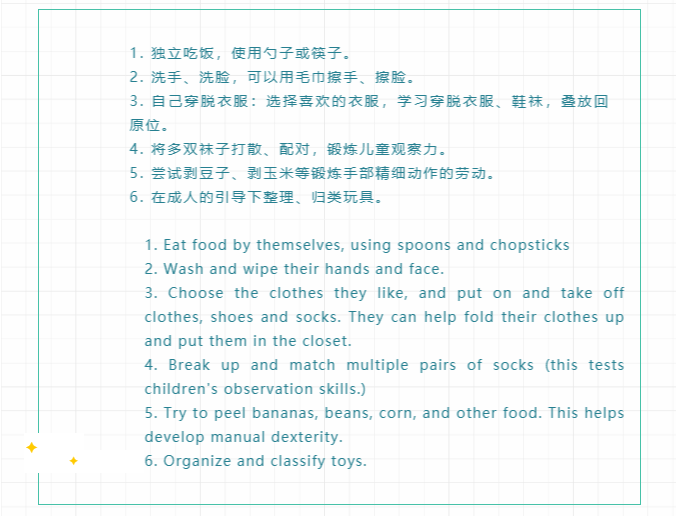
這個(gè)階段�����,兒童喜歡模仿大人的動(dòng)作�����,這是他們探索周圍的方式���,可以在安全有保障的前提下儘可能提供嘗試的機(jī)會(huì)������。
At this stage, children like to imitate the actions of adults, and explore their surroundings. Parents can provide opportunities for children to try do things on their own.
4-6 years old.Children can use their imagination. They can:

有條件的家庭還可以讓孩子參與一些種植花草和飼養(yǎng)小動(dòng)物的活動(dòng)������。
Parents also can let their children participate in tree planting activities, and let them take care of pets.
這個(gè)階段���,孩子具有豐富的想像力����,而且相比玩具�����,他們可能對(duì)真實(shí)的生活用品更感興趣������,可以多鼓勵他們嘗試新鮮事物������。
At this stage, children have developed their imagination, and they may be more interested in real daily groceries than toys. So, parents can encourage their children to try new things in their life.
生活即教育����,孩子的學(xué)習(xí)從來(lái)都不局限於教室������,勞動(dòng)帶給孩子們獨(dú)立、自信、快樂和能力是他們一生的財富�����。
Life is education. Children's learning should never be limited to the classroom. Labor brings children independence, self-confidence, happiness, and ability, which is the treasure of their life.